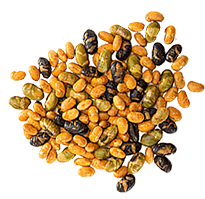No products in the cart.
The miracle is this: the more we share, the more we have.

Insights
Food and diet choices are intensely personal and most often based on a host of factors including lifestyle choices, condition-specific medical needs, health benefits, ethics, and environmental concerns. Here is an overview of some of the growing food communities and their choices:
Vegetarian
Vegetarianism often starts with an ethical decision based on compassion for all living beings and for the huge benefits to our environment. As food communities go, it has one of the larger bodies of research behind it with several significant studies showing vegetarians to have significantly lower blood pressure and a lower lifetime risk of heart disease. Of note, nutritionists say it can be challenging for vegetarians to get enough B12. All people in any dietary type need to be aware of obtaining sufficient nutrients.
Vegan
Like vegetarians, vegans often begin their dietary commitment with an ethical decision to avoid animal products altogether based on compassion for all living beings and for the huge benefits to our environment. In addition to eliminating meat, poultry and seafood, vegans also opt-out of other animal products including dairy products, honey and egg, as well as clothing and household products made from animals. Benefits may include an increased intake of wholesome foods such as vegetables, fruits, legumes (beans and pulses), seeds and whole grains rich with antioxidants, dietary fiber, healthy fats, vitamins and minerals. Downsides may include a general inconvenience factor and difficulty in getting enough protein in every meal or snack setting, especially when away from home. Carrying vegan foods and snacks to make eating out easier is often recommended.
Flexitarian
Flexitarian is a term used to describe people who describe themselves as making increased plant-based food choices in place of animal-based food choices. The people in this food tribe minimize meat without excluding it altogether. Benefits of a flexitarian approach may include better health and lower risk of heart disease, cancer and diabetes while providing more flexibility in food choices, and of course the huge benefits to our environment as well as compassion for other living beings. Some downsides may include nutritional deficiencies for people who are not experienced in cooking with legumes (beans and pulses) and high protein seeds and grains, or who don’t have guidance for making up for the loss of protein in their diets.
#MunchyProtein




